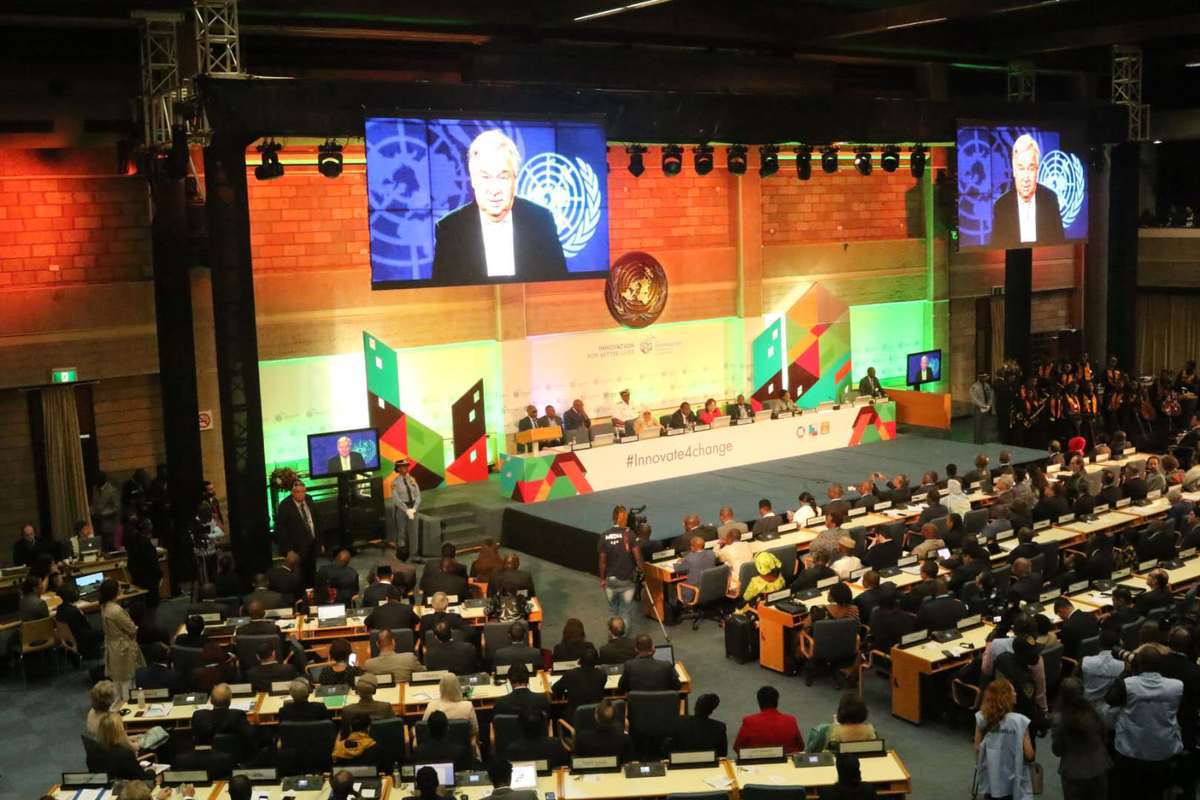
The first session of the UN-Habitat Assembly kicked off in Nairobi, Kenya on May 27, 2019. (Photo by Liu Hongjie/Provided to chinadaily.com.cn)
The presidents of Kenya and South Sudan together with the Fiji and Yemeni premiers have underscored the importance of involving the private sector in realization of urban agenda, which calls for sustainable and inclusive cities for all.
Speaking at the first session of the UN-Habitat Assembly in Nairobi, Kenya, the leaders committed to actively involve the private sector as a key partner.
Uhuru Kenyatta, the president of Kenya said governments alone may not be able to provide for the required housing units among other development goals.
The president said challenges of development across the globe calls for innovative and creative solutions including through public-private partnerships, which yield benefits for all.
"There is need for innovative ways like involvement of the private sector to realize urban agenda. The traditional approaches to the housing challenges have failed to keep pace with the increasing housing demand for the growing population," he said.
Uhuru said governments need to change how they provide services right from the supply of materials, the type of houses to be built, the new ways of financing to ways of making houses more affordable.
He said provision of affordable housing is the first step for any government to achieve its development goals.
Noting that the private sector is a bit conscious, Uhuru said there is need to create an enabling environment for them to thrive, by ensuring that right policies and frameworks are in place.
Salva Kiir, the president of South Sudan, said the private sector in his country was still weak owing to the instability that had plagued the country but said his government was ready for partnership towards construction of affordable houses.
Kiir said the continued challenges experienced in South Sudan's cities and urban areas including poor infrastructure, unemployment and insecurity impeded the national development.
He said they were looking into the efforts to tackle the challenges which includes interventions to provide jobs and create income generation opportunities.
Josaia Vorege, the prime minister of Fiji, said involvement of the private sector is a must for any country to achieve the Sustainable Development goals or SDGs.
Vorege said governments should develop clear financing mechanisms that will accommodate the private sector.
He also called for global action to address the unprecedented scale of threat from climate change.
"We are innovating every day to protect our people from the impact of the climate crisis because it would be a global catastrophe," he said.
Maeen Abdulmalik, the prime minister of Yemen, said it is difficult for the private sector to work in countries that are experiencing conflicts.
He said the conflict in his country had created an extraordinary demographic change within towns and cities, as residents fled from conflict areas.
"When it comes to urban planning and housing, we need hundreds of thousands of units in certain areas as well as need for electricity. So we are striving for and relying on the private sector to produce these," he said.


